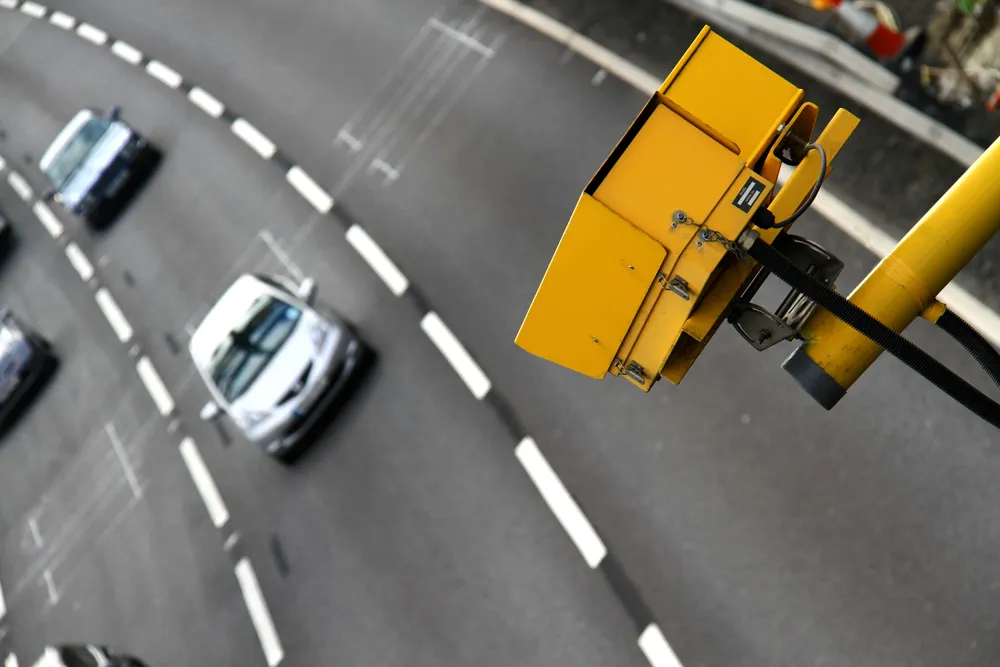International Road Dynamics (IRD) has been awarded a contract by Oklahoma Department of Transportation (ODOT) to build, implement, and maintain new and innovative port-of-entry (POE) electronic (E)-screening systems (EES) and virtual weigh stations (VWS) for commercial vehicles within the State of Oklahoma. The initial phase of the contract includes installations valued at US$5,036,500.00 on Interstate-35 North, Interstate-40 East, and Interstate-40 West. The initial contract period is one year with options
April 26, 2012
Read time: 2 mins
RSS3508 International Road Dynamics (IRD) has been awarded a contract by 5295 Oklahoma Department of Transportation (ODOT) to build, implement, and maintain new and innovative port-of-entry (POE) electronic (E)-screening systems (EES) and virtual weigh stations (VWS) for commercial vehicles within the State of Oklahoma. The initial phase of the contract includes installations valued at US$5,036,500.00 on Interstate-35 North, Interstate-40 East, and Interstate-40 West. The initial contract period is one year with options to renew on an annual basis for an additional four years as ODOT proceeds with the deployment of additional systems throughout the State.
The purpose of this agreement is to enable ODOT and the5296 Oklahoma Corporation Commission (OCC), which will run the new POEs, to better focus limited resources on potentially high risk or non-compliant commercial vehicles. The e-screening systems have the potential to enable enforcement officers to increase the number of vehicles and drivers subject to full compliance verification as part of the inspection selection decision. IRD will work closely with the State to develop, test, install, and maintain the systems at each location.
This contract includes the supply and installation of IRD’s weigh-in-motion (WIM) and roadside operation credentialling (iROC) systems utilising licence plate reader (LPR) and USDOT reader technology, vehicle dimensioning, fully integrated static scale, video verification, vehicle movement compliance, and operational software.
These systems will allow trucks whose weight, dimensions and credentials are compliant to bypass the POEs at highway speeds, thereby reducing the number of trucks that are required to stop at the inspection stations. With fewer delays at these facilities, compliant carriers are able to deliver goods on time without the disadvantage of competing against overloaded or non-compliant carriers. The virtual weigh station systems located on nearby roadways will help detect overloaded vehicles attempting to bypass the ports of entry.
“These will be the first state-of-the art e-screening systems for ommercial vehicles in Oklahoma, and we are pleased to have been awarded this very significant project,” said Terry Bergan, IRD’s resident and CEO.
The purpose of this agreement is to enable ODOT and the
This contract includes the supply and installation of IRD’s weigh-in-motion (WIM) and roadside operation credentialling (iROC) systems utilising licence plate reader (LPR) and USDOT reader technology, vehicle dimensioning, fully integrated static scale, video verification, vehicle movement compliance, and operational software.
These systems will allow trucks whose weight, dimensions and credentials are compliant to bypass the POEs at highway speeds, thereby reducing the number of trucks that are required to stop at the inspection stations. With fewer delays at these facilities, compliant carriers are able to deliver goods on time without the disadvantage of competing against overloaded or non-compliant carriers. The virtual weigh station systems located on nearby roadways will help detect overloaded vehicles attempting to bypass the ports of entry.
“These will be the first state-of-the art e-screening systems for ommercial vehicles in Oklahoma, and we are pleased to have been awarded this very significant project,” said Terry Bergan, IRD’s resident and CEO.







